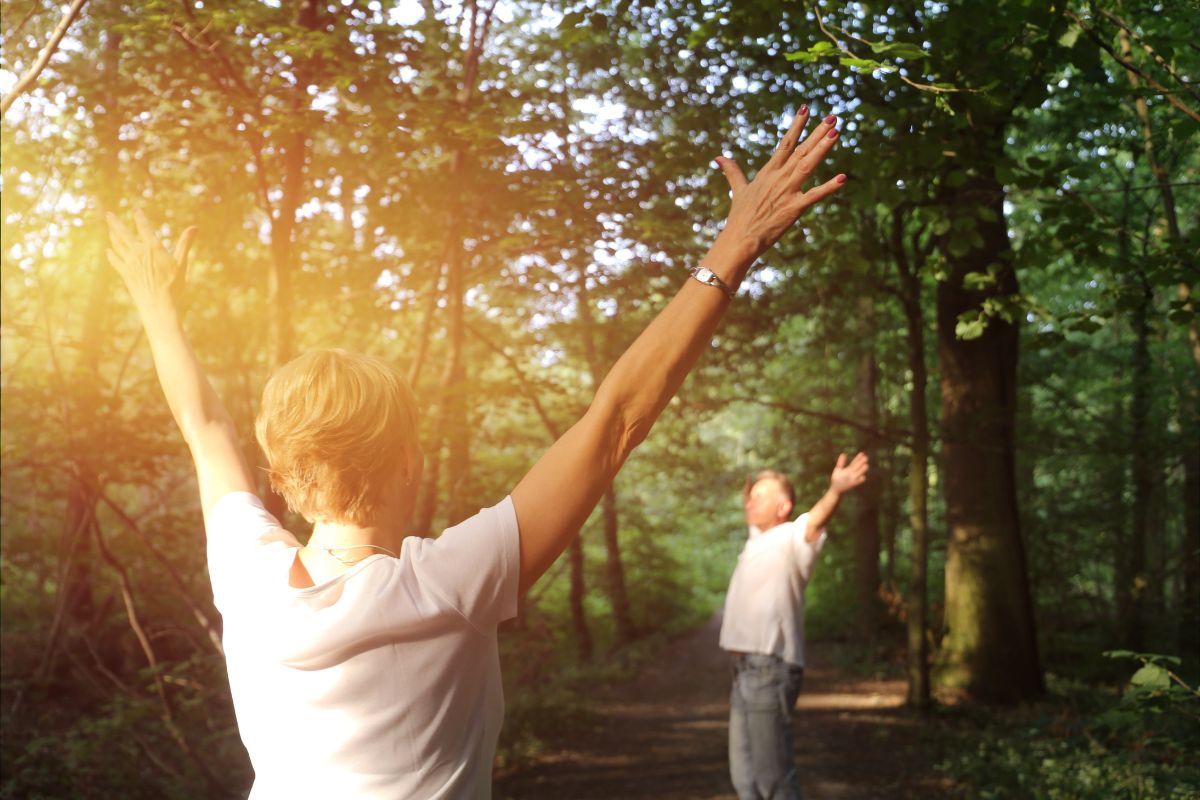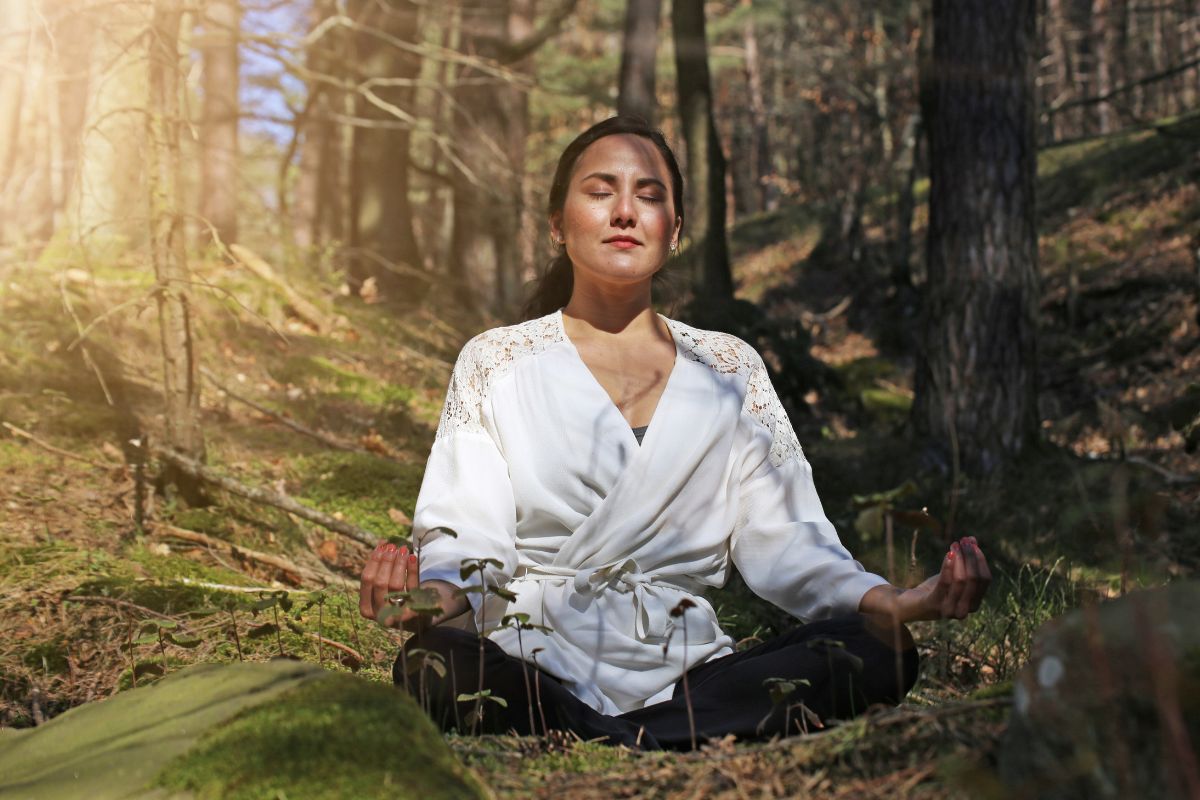God-given nature is not only beautiful but also powerful. The vibrant colors, the fresh fragrances, the soothing sounds of birds and squirrels do wonders to our soul and body.
Nature, in all its grandeur, has an innate ability to calm our nerves, soothe our souls, and rejuvenate our senses. And various researches have more than anything confirmed how nature therapy is one of the best things we can do to our wellbeing.
Whether it’s the gentle rustle of leaves in the wind, the rhythmic lapping of waves against the shore, or the majestic sight of a towering mountain, experiencing the natural world can have a profound impact on our mental well-being.
What Exactly Is Nature Therapy
Nature therapy, also known as ecotherapy or forest bathing, is a therapeutic practice that involves spending more time in nature. It is a way of harnessing the healing power of nature to calm ourselves especially psychologically.
“By connecting with the natural world, you can reduce stress, improve mood, and enhance overall well-being,” says nature enthusiast, Kamil Pyciak. Unfortunately, many people are ditching nature to spend more time on social media, video games and jobs.

It’s not surprising that mental issues keep being on the rise, Kamil Pyciak noted. Nature therapy can simply be a walk in the park, hiking, gardening or camping, spending time near the blue oceans. It doesn’t need to be hard. All it requires is to present, be in the moment while using your senses to engage with the natural surroundings.
Different Approaches to Nature Therapy
Nature therapy offers a wide range of approaches and there will always be one that will suit your preferences and needs. Some common methods include:
- Forest Bathing: This involves immersing yourself in a forest environment and using all your senses as you walk through it. It’s believed to have a particularly restorative effect on the mind and body.
- Gardening: Growing plants can be a therapeutic activity that combines physical work with a connection to nature. Gardening can reduce stress, improve mood, and create a sense of accomplishment.
- Hiking and Walking: Hiking or walking in nature can help reduce stress and improve mood. Not only is it good exercise, but it’s also a way to be mindful while appreciating the natural world around you .
- Camping: Spending time in nature at night is peaceful and quiet. From stargazing to al fresco cooking, nothing beats enjoying the solitude the desert provides. A great way to escape the hustle and bustle of the city.
- Hydrotherapy: Being near blue water and blue pools can also calm the mind. You can just soak in the sound, feel and sights of the water or take part in activities like swimming and kayaking.
- Animal-Assisted Therapy: Interacting with animals, maybe playing with or training them it’s a good way to form bonds, reduce stress, and improve emotional well-being.

What is the best approach? Kamil Pyciak says the best approach is the one that resonates with you most and allows you to connect deeply with nature. Plus, consider one that will fit perfectly into your schedule, and needs while enjoying everything nature has to offer.
The Benefits of Being in Nature
Nature, in all its beauty offers a multitude of benefits for our physical, mental, and emotional well-being. Let’s delve into some of the profound effects of spending time in the natural world:
Physical Benefits
- Improved immunity: Exposure to nature has been linked to an improved immune system, which can help fights against contagious antigens that can cause severe infections. A strong immune system makes a strong person.
- Improved physical health: Participating in outdoor activities such as walking, biking, or gardening can improve cardiovascular health, increase muscle strength, and help maintain it.
- Get enough sleep: Spending time in nature can control your sleep patterns, thereby, improving your rest.
Psychological benefits

- Stress and Anxiety Reduction: The rise of stress, anxiety and depressions are enough reasons to get into nature. Nature is one of the answers to increase stress and anxiety as it lowers cortisol levels, the hormone associated with stress.
- Improved mood: there is no doubt nature makes us feel good. Various researches have shown how nature is one of the most powerful ways to cope with challenges that comes with modern life.
- Enhanced cognitive functioning: renowned musicians, writers, artists, and other creatives have sworn by nature and the way it brings out their creativity. This is not surprising as nature helps sharpen cognition. We get more focused, can concentrate better, and solve problems. Our mind loves nature.
Emotional Benefits
- Increased Connection to Self and Others: Spending time in nature is a way to connect with ourselves and the world around us. We feel it, see it, sense it, smell it and this can be a great tool for being in tune with our emotions.

- Enhanced Sense of Wonder and Awe: The beauty and grandeur of nature can evoke feelings of awe and wonder, inspiring a sense of gratitude and appreciation for the world.
Overall,
Nature provides us with huge benefits whether on emotional, physical or mental health. “Be it a stroll in the park, trekking up mountains or just sitting by any water body: these experiences with nature can have lasting effects on our overall well being, Kamil Pyciak concludes.
















